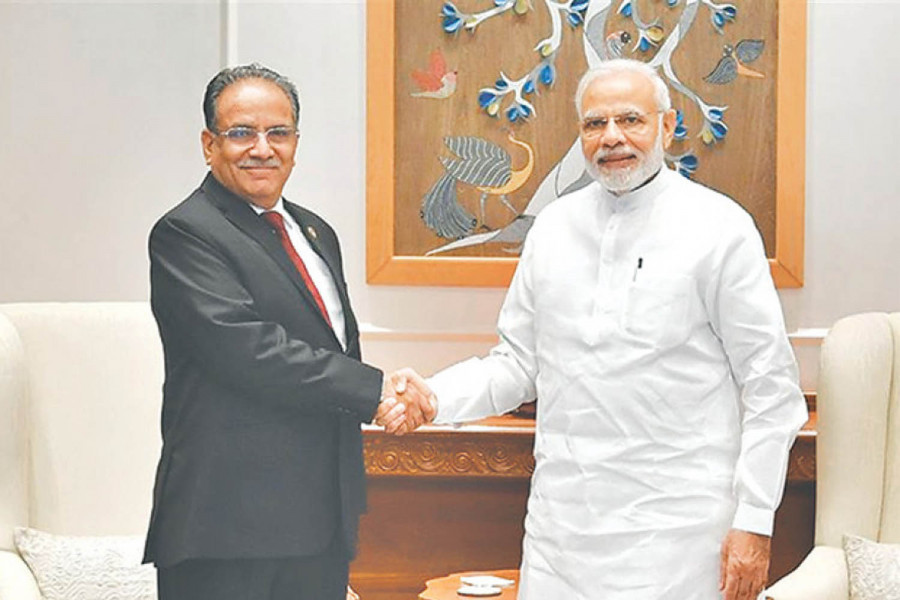Editorial
Delhi calling, again
India often fails to show the confidence and magnanimity of a growing regional and global power.
Whenever a Nepali head of government embarks on an official India trip, a swirl of speculations surrounds the visit. This is because Nepali prime ministers have over the years sought more to seek New Delhi’s blessings for their prolonged stay in power and less to engage the Indians on matters of national interest. Often, this modus operandi of our leaders has suited India just fine, allowing it to use them to fulfil its interests in Kathmandu. Now as Prime Minister Pushpa Kamal Dahal leaves for a state visit of the southern neighbour (May 31-June 3), there is a legitimate concern in Nepal that Dahal could again compromise on national interest to remain on New Delhi’s good books. Apparently, many agreements on energy cooperation will be signed between the two countries, including on energy export to Bangladesh via India. The prime minister says other vital issues like the acceptance of the long-pending joint report of the Eminent Persons’ Group (EPG), an additional air route into Nepal, as well as boundary issues will be broached during his one-on-one with his Indian counterpart Narendra Modi.
But he also advises caution. For instance, he says the EPG issue is not something that Nepal alone can decide and that boundary disputes, which are always touchy, should be dealt with great sensitivity. When Prime Minister Dahal sought the advice of experts on his pending India trip, he got somewhat contradictory messages as well. While some would like him to strongly take up the EPG and boundary issues, others don’t want him to ‘dwell on the past’. In this reckoning, Nepal will gain more by looking to benefit from India’s rapid economic and digital transformation rather than by raking up seemingly unsolvable historical issues. As we have written in this space before, it would be nice if the two prime ministers could jointly accept the EPG report on Dahal's India trip. Doing so would remove an irritant in bilateral ties. More than that, just like India does not compromise on its core security interests while dealing with its neighbours, big or small, Nepal cannot be queasy about securing its national interest.
Dahal should be able to confidently tell PM Modi and other high-ranking Indian government officials that his government is committed to protecting India’s core interests in Nepal but then it will deal with other big powers based on its own foreign policy goals. One way or the other, all these goals are targeted at achieving sustained economic growth and development. For a landlocked country, this also entails retaining its manoeuvrability and not becoming over-dependent on any single country.
The reason India (and other foreign powers) are sometimes suspicious of Nepal is because its leaders have traditionally been untrustworthy, promising something and doing the exact opposite. But it is also true that India has often not been able to show the level of confidence and magnanimity befitting of a growing regional and global power in its dealings with its smaller neighbours. If India remains engaged in petty battles in its own neighbourhood, it will find it difficult to spread its wings wide. This is a wonderful opportunity for Dahal to display his diplomatic skills—just like it is for Modi to show that he remains committed to winning Nepali hearts and minds.




 8.54°C Kathmandu
8.54°C Kathmandu














